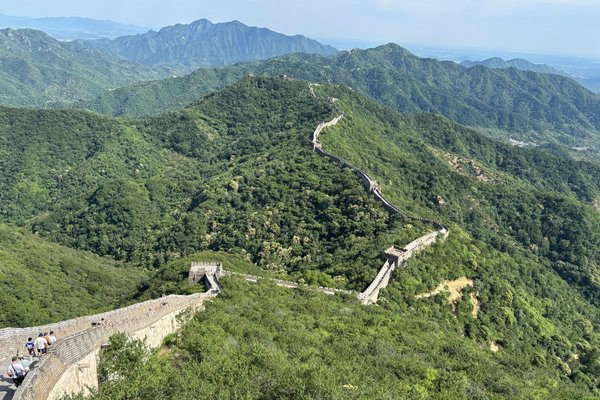Dickinson State University (DSU) recently sent three agriculture students to China as part of an educational exchange program that broadened their understanding of global agricultural practices and strengthened international relationships.
The trip aimed to introduce U.S. students and future leaders in agriculture to Chinese farming methods and culture while promoting dialogue and cooperation across borders.
Among those who took part in the experience were Lorelei Jarrett, a senior majoring in agriculture with an emphasis in international agriculture business, and Nathan Unruh, also a student in DSU’s agriculture program. Both described the experience as transformational—academically, professionally, and personally.
“We stayed in the cities of Beijing and Zhengzhou,” Unruh said. “We traveled around those to different places for tours of production and processing facilities, research and development centers, cultural tours, etc.”
The delegation visited two universities, the North to South Water Project, the Henan Modern Agricultural Experimental Demonstration Base, and Muyuan Foodstuff Co., one of China’s major pork producers.
“The primary goals of the trip were to learn about agricultural production and other processes in China, and to communicate with ag leaders in order to foster meaningful relationships across our two countries,” Unruh explained.
Jarrett reflected on how the trip tied directly into her academic and career goals.
“My biggest takeaway was the parallels as well as the differences between China and the United States,” Jarrett said. “We noticed a lot of cultural and economic differences, which helped us see agriculture from a different perspective.”
Unruh echoed those sentiments, emphasizing the critical nature of agricultural diplomacy. “My biggest takeaway from this experience is that—and I hope this gets directly quoted—‘Agriculture is the backbone of our relationship with China. Agriculture is one of the biggest industries to prosper in times of sound mutual collaboration, and it is one of the first to take a hit in times of trade difficulty. I think that it is of paramount importance that we work together with China, for the benefit of our countries, and for the benefit of the entire world.’”
Both students noted how well the trip enhanced their classroom education.
“A few skills I learned in the classroom that helped on this trip include knowledge about farming practices, the ability to ask questions effectively, and strong note-taking,” Jarrett said. “We absorbed a vast amount of information in just a few days, and without taking notes or asking questions, I wouldn’t have been able to retain nearly as much.”
Unruh added, “The communication skills I've learned through my degree were more than helpful when it came to discussion and collaboration. I was better able to have mindful conversations about sometimes difficult topics.”
When asked how this experience would impact their future, both students pointed to long-term growth.
“This trip will shape my perspective on foreign countries and agriculture,” said Jarrett. “As I finish my undergraduate degree, I’ll use this experience as a cornerstone in learning about foreign trade, global markets, and other cultures.”
Unruh agreed. “Just the experience alone of getting out and learning. I learned more about agriculture in China on this trip than in the last 21 years of my life altogether. That information and those relationships I'm sure will stick with me for the rest of my life.”
Their favorite moments varied but reflected the depth of connection the students experienced.
Jarrett recounted walking the Great Wall of China. “Struggling to get up that wall together was a bonding experience,” she said. “It was good to see each other cheering on our group members. The view from the Great Wall was spectacular, an experience I hope to have again.”
Unruh highlighted the value of professional dialogue. “My favorite part of the trip was being able to talk to some of the top ag leaders, producers, educators, and to foster those relationships between the U.S. and China.”
Unruh also expressed his appreciation. “I would like to add that I am very grateful for the opportunity to be a part of the delegation. It was one of the most amazing experiences I've ever had. Lastly, I can't thank all the people who made it possible enough.”
The experience highlights DSU’s commitment to providing students with global opportunities that connect classroom learning with real-world applications. For Jarrett, Unruh, and their peers, the trip was more than just an educational tour—it was a life-changing journey that expanded their worldview and strengthened their professional aspirations.
“Opportunities like this are essential for preparing students to lead in a globally connected world,” said Holly Gruhlke, DSU Vice President of Academic Affairs and Provost. “By experiencing firsthand how agriculture operates on an international scale, our students gain not only technical insight, but a deeper appreciation for the importance of collaboration, diplomacy, and cultural understanding.”
For more information on Dickinson State University’s agriculture programs, visit dickinsonstate.edu or email dsu.hawk@dickinsonstate.edu.

